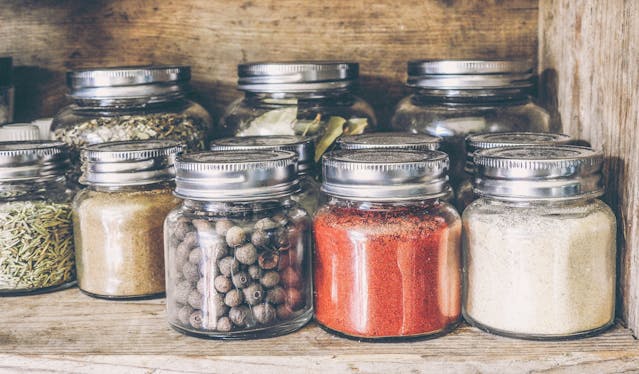Herbal remedies have long been valued for their ability to harness natural ingredients to promote holistic health. If you’re looking to embrace a simpler, more natural lifestyle, incorporating herbal extracts could be a great place to start. These herbs often contain potent compounds that interact with your body to improve both physical and mental well-being.
This article will explore the benefits and risks of using herbal supplements, and how they’re transforming the wellness world.
What Are Herbal Supplements?
Herbal supplements come from plants that contain beneficial compounds known as active ingredients. These plants, often grown in tropical or temperate climates, have been used in traditional medicine for centuries. Some of the most common herbs include adaptogens like ginseng, calming herbs like chamomile, and energizing herbs like peppermint. These herbs can contain a variety of potent substances, such as alkaloids, flavonoids, and essential oils, each of which can interact with your body’s systems in unique ways. For example, if you’re seeking high-quality herbal supplements, you can explore trusted sources like Kratom Temple for authentic and effective options.
The specific effects of any herbal supplement depend on the plant’s properties, the method of preparation, and the dosage used. Some herbs, like chamomile or valerian root, are often used to promote relaxation, while others, like ginseng, are used for energy and stamina.
Benefits of Herbal Supplements
Herbal supplements can offer a range of health benefits depending on the herb in question. Below are a few key benefits that various herbal remedies may provide:
1. Pain Relief
Herbal extracts such as turmeric, ginger, and willow bark are known for their natural analgesic (pain-relieving) properties. These herbs contain compounds that interact with the body’s inflammation pathways and can help ease chronic pain, sore muscles, or joint discomfort. Whether taken as a supplement, in tea, or as part of a topical ointment, herbal remedies can often provide a natural alternative to over-the-counter pain medications.
2. Boosting Energy
Many herbs are used to combat fatigue and increase energy levels. Herbs like ginseng, rhodiola, and guarana have stimulating effects and are often used to reduce feelings of tiredness and improve concentration. These herbs work by stimulating the body’s natural processes, providing you with more energy to face your day and enhancing overall cognitive performance.
3. Managing Stress
In today’s fast-paced world, stress is a common issue that many people deal with daily. Some herbs, like ashwagandha, lavender, and valerian root, are classified as adaptogens, meaning they help the body adapt to stress. These herbs can lower cortisol levels (the stress hormone) and induce a sense of calm and relaxation. Regular use of these herbs can help reduce anxiety and improve sleep, leading to better mental and physical health.
4. Supporting Digestive Health
Herbal supplements are often used to support digestive health and alleviate conditions like bloating, indigestion, and constipation. Peppermint, ginger, and fennel are known for their digestive-supporting properties, as they can relax the digestive tract muscles, reduce inflammation, and encourage better nutrient absorption.
5. Supporting Immune Function
Certain herbs, such as echinacea, elderberry, and astragalus, are known to boost the immune system and help the body fight off infections. These herbs contain bioactive compounds that stimulate the production of white blood cells, supporting the body’s ability to ward off illness and disease. Many people turn to these herbs during cold and flu season for extra protection.
Risks and Considerations of Herbal Supplements
While herbal supplements can provide numerous health benefits, it’s important to approach them with caution. Herbal remedies can have side effects or interact with prescription medications, so it’s always recommended to consult with a healthcare provider before beginning any herbal regimen, especially if you’re pregnant, breastfeeding, or have any underlying health conditions.
Additionally, the quality and purity of herbal supplements can vary greatly. It’s essential to buy from trusted, reputable brands and sources to ensure that the product you’re using is safe and effective.
Ways to Use Herbal Supplements
Herbal supplements can be used in a variety of ways, depending on the herb and your preferences. Below are some common methods of incorporating herbs into your routine:
1. Herbal Tea
One of the most common ways to use herbs is by making them into tea. Many herbs, such as chamomile, peppermint, and hibiscus, are ideal for steeping in hot water. Herbal teas can help with digestion, stress, and sleep while providing a calming, aromatic experience.
2. Capsules or Tablets
For those who prefer a more precise dosage, herbal supplements are available in capsule or tablet form. This method is especially convenient for those who don’t enjoy the taste of certain herbs or who want a quick and easy way to get their daily dose.
3. Herbal Powders and Extracts
Herbal powders can be added to smoothies, shakes, or other beverages to boost their nutritional content. For example, spirulina, maca powder, and matcha can be added to your morning smoothie for an energy and immunity boost. Liquid extracts and tinctures are also popular for those who prefer to avoid capsules but still want a potent dose of herbal goodness.
4. Topical Application
Some herbs can be applied directly to the skin in the form of oils, balms, or creams. Herbs like lavender and calendula are known for their soothing properties and are often used in skincare products to reduce irritation, promote healing, and improve skin tone.
Final Verdict
Herbal remedies have long been part of traditional medicine and are now being increasingly recognized for their potential to improve modern-day wellness. From providing pain relief and boosting energy to reducing stress and supporting immune function, there’s a wide range of benefits herbs can offer. However, as with any supplement, it’s essential to use them responsibly and consult with a healthcare provider to ensure you’re using them correctly and safely.
By finding the right herbs and incorporating them into your lifestyle, you can unlock a more holistic approach to health and well-being.




